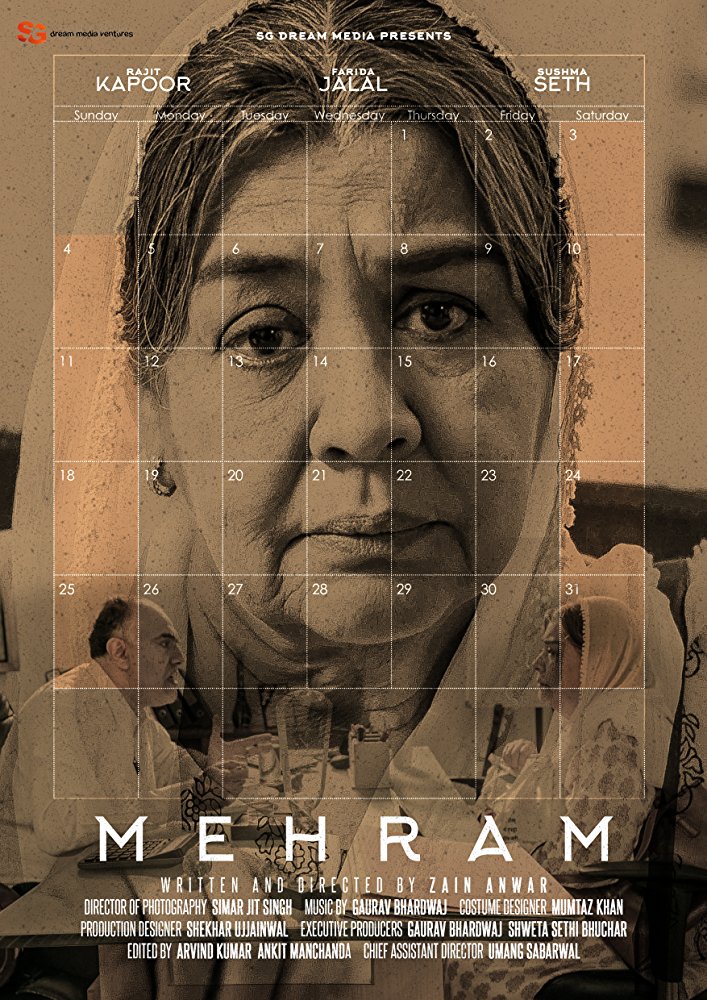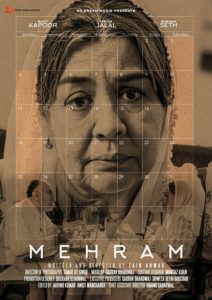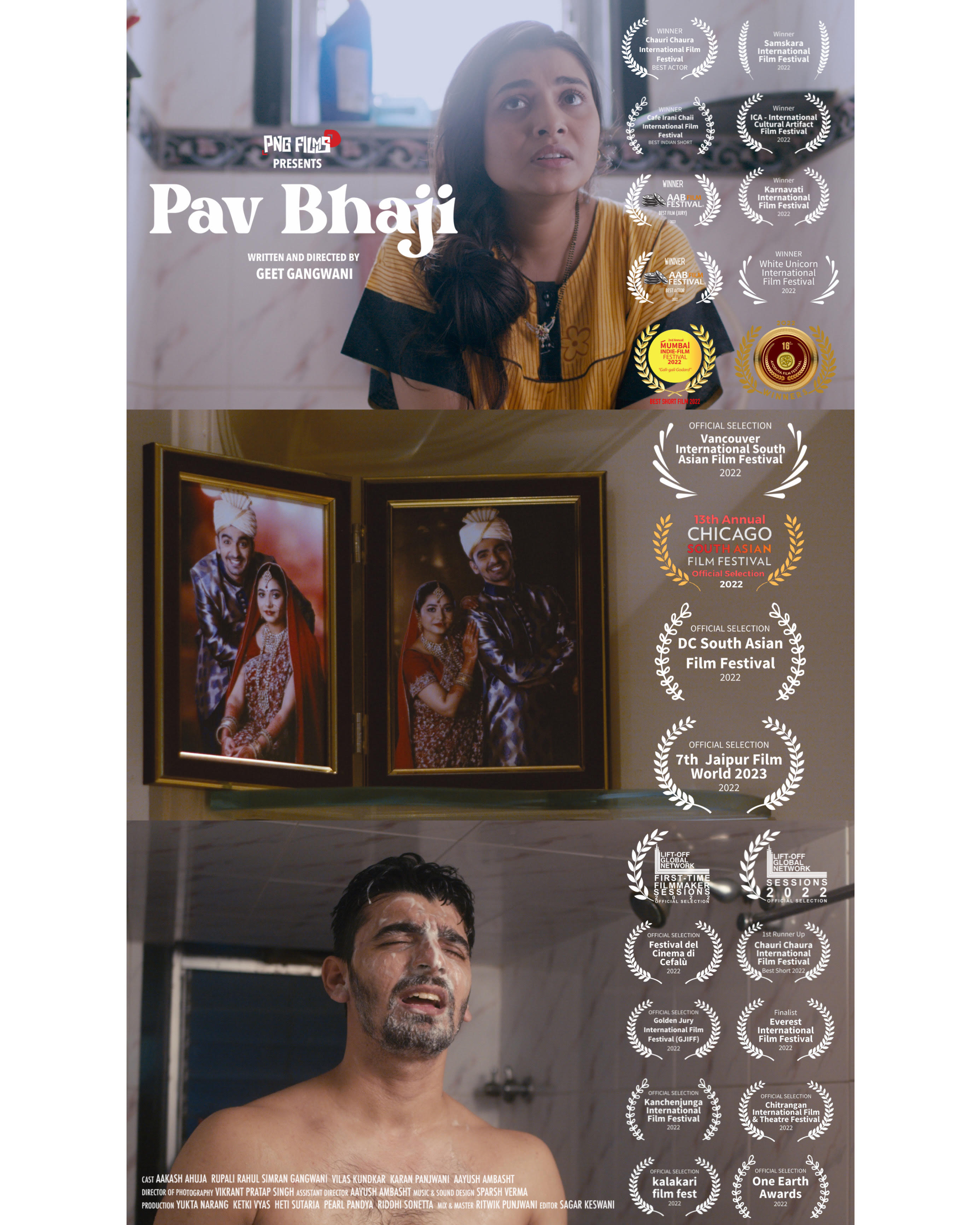
DFW SAFF 2018 Short Film Review “Mehram”
WATCH THE TRAILER HERE
First, the Recap:
The ability to influence others. Might we take for granted what can be the overwhelmingly potent realization that even the simplest act or measures initiated towards another human being can have lasting and impactful ramifications? Whether these results are to good or ill effect, however, remains to be determined. For one aging woman named Aamna (Farida Jalal), her sole desire is to make the coveted Islamic pilgrimage to Mecca, the Hajj. However, due to a specific law in place that currently prevents her from doing so at all, it becomes an exercise in frustration and dismay.
Initially turning to her cherished friend Noor Bibi (Sushma Seth), her clothing business’ tailor, Master Ji (Anurag Awasthi), and even Afzal (Akash Arora), the son of a former employee whom she raised, none of them can truly bring her the answers she seeks in how to make the Hajj a reality. Therefore, Aamna ventures forth in the only way she can consider–becoming a constant presence in the office of hard-nosed Hajj Committee official Ikhlaque Siddique (Rajit Kapur), much to his growing consternation. Refusing to give up, circumstances arise from her perseverance that ultimately have an immutable, abiding effect on them both.
Next, my Mind:
Making its international debut at DFW SAFF 2018, this 33-minute short film from writer/director Zain Anwar carries itself with character-driven poise and a slow burn mentality that draws the viewer in just enough to leave them desiring to see what the fates have for Aamna and her battle against rigid tradition while striving to achieve her highly significant goal of making the Hajj pilgrimage. Additionally, we are presented with a straight-forward portrait of human relationship as it applies to how opposing viewpoints and the aforementioned struggle with traditional thought processes can be completely changed in a single moment of clarity and inner transformation, hence bringing about a total turnaround in perspective and heart towards another human being that transcends conflict and allows for that basic connection as people to occur, which is so desperately missing in this modern world. The finale here is ultimately quite effective, given all that’s transpired up to it, and it’s a very sobering conclusion.
Actress Frida Jalal is so endearing and deeply emotive in her role as Aamna, a woman who we gather has lived a fulfilled life, but is now in her twilight years, mostly alone, living in a small home, and only wanting to gain the chance to experience the soul-reviving Hajj to have, perhaps, that final sense of completeness. Yet, in trying to do so, she is faced with the harsh realities of seemingly immovable statutes and unwavering dispositions that almost breaks her. However, she finds within herself the fortitude to persist, and how it all culminates is potent and affecting, all very well enacted by Jalal. Kapur, one of the truly great character actors in the Indian film industry, shines yet again as stubborn, inflexible Hajj Committee head Ikhlaque Siddique, a man driven by duty, often seeming overtly pressured by the rigors of his position, who’s forced into a place he doesn’t initially appreciate by Aamna, a consistent thorn in his side. Watching how her overall approach and attitude ends up so greatly turning his entire mindset around is deftly executed, with Ikhlaque’s “awakening” so perfectly played out by Kapur.
Supporting turns are delivered with grace by Seth as Aamna’s longstanding friend Noor, who doggedly supports Aamna, even if she might not always be convinced Aamna’s methods to obtain her goal will actually work out, Awasthi as Master Ji, a tailor who works in Aamna’s shop and likewise champions her cause, but has hesitations himself about the end game, Arora as Aamna’s “son” Afzal, whom she’s raised effective as her own, and who plays a very key role in the proceedings and how events wrap up. Additional appearances are made by Satyendra Malik as Ikhlaque’s hapless aide Govind who bears more than his fair share of “abuse” from his boss while sympathizing with Aamna’s plight, often to comical ends, and Aarti Shahi as Aamna’s daughter Ayesha, who more than makes every effort to dissuade her mother from the course she’s taking, and becomes a stirring voice of reason and reality during the film’s finale.
In total, “Mehram” is a pleasantly simple and effectively nuanced piece of independent filmmaking that carries with it many messages relevant in this current world where we see such a lack of understanding, flexibility, and the basic affinity towards each other as human beings. We can hope, however, that change can occur and that films like this can actually be a catalyst to bring certain situations to light and foster that needed evolution.
As always, this is all for your consideration and comment. Until next time, thank you for reading!




